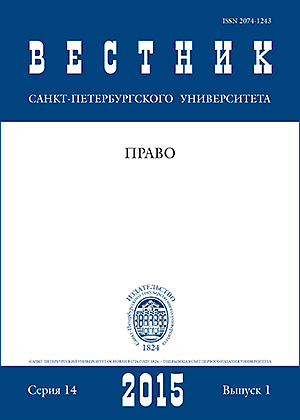"Legal" forms of illegal methods of regulating the property rights (on the example of dispossession of kulaks (raskulachivanie)
Abstract
Based on the analysis of the Soviet legislation and the set of administrative acts of 1920s–1930s, the authors discuss in the legal field the concept of «kulaks» and the mechanism of their dispossession (“raskulachivanie”) as a specific illegal method of confiscatory redistribution of property in transition economy of the mobilization type. The authors conclude that the notion of «kulaks», being widely applied in repressive practices, was not legally established and defined, and pseudo-legal measures of «raskulachivanie», solving solely political tasks, were contrary to the economic efficiency of agricultural production. In this case, the law did not regulate the prevailing social relations, but tried to shape them within the framework of the class doctrine of socialism that had far-reaching consequences: rehabilitation of former «kulaks» was significantly hampered; the precedent of force regulation of property relations beyond the current legislation was created; and, that is especially important in the modern complicated complex geopolitical situation, the negative historical background was formed which considerably deteriorates the perception of the Russian legal realities by investors.
Keywords:
property rights, kulaks, Soviet legislation, force regulation
Downloads
Downloads
Published
How to Cite
Issue
Section
License
Articles of "Vestnik of Saint Petersburg University. Law" are open access distributed under the terms of the License Agreement with Saint Petersburg State University, which permits to the authors unrestricted distribution and self-archiving free of charge.






